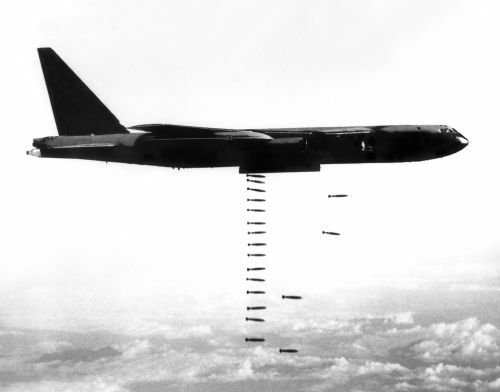Throughout its history, Afghanistan has been the target of several conflicts that have placed this country in a dismal situation. Many of the conflicts developed there were due to its privileged location, responsible for the interconnection between the Middle East, India and the rest of Central Asia. Target of the expansion of the Arab world, in the seventh century, the region would become a veritable melting pot of beliefs, placing Buddhists, Hindus and Muslims in the same territory.
With the end of World War II (1939 - 1945), the government came under the control of the military Mohammed Daud Khan. From the first moment it was in power, it approached the Soviet government seeking to establish economic agreements and military aid. After ten years of a government that abolished certain religious customs in the country, Mohammed suffered a military coup that removed him from Afghan political life for an entire decade.
In 1973, he re-established contacts with the Soviet government and allowed for changes in line with the guidelines of Soviet socialism. However, he was hit again by a coup movement in 1978, when members of the People's Democratic Party of Afghanistan seized power and assassinated Mohammed Daud Khan. With the new political incident, the Soviets decided to intervene in the Afghan question by demanding the deposition of the new president Hafizullah Amin.
Without getting a favorable response from the new Afghan leadership, the Russian government decides to send a well prepared army that should sweep away all those who opposed the appointment of Barbak Karmal to the presidency of the parents. Meanwhile, the mujahedin – a group of Afghan guerrillas opposed to the Russian intervention – were fighting against the Soviet troops. In a short time, such resistance began to count on the financial and military support of nations such as China, the United States, Iran, Pakistan and Saudi Arabia.
From that moment on, Soviet troops would suffer successive defeats against the modern military apparatus provided by the allied nations to Afghanistan. In this way, President Mikhail Gorbatchev announced the withdrawal of Russian troops from Afghan territory. In 1988, Soviet, US, Afghan and Pakistani leaders signed a peace agreement that ended the conflict. With this defeat, the socialist bloc gave yet another sign of its coming disintegration.
Despite the end of the war, other conflicts would take over the Afghan territory. Several dissident groups would try to overthrow the new government of Mohammad Najibullah. In 1992, several militias took over the capital Kabul and promoted the ousting of President Najibullah. The newly inaugurated government tried to strike a collision between mujahideen warriors and ethnic Tajik members.
However, Afghans belonging to the Pashtun ethnic majority joined the radical army Islamic Taliban, who repudiated the political integration of different ethnic and religious groups in the parents. In 1996, this orthodox movement managed to take over the Afghan capital. Since then, a terrible fundamentalist government has continued a terrible military dispute that claimed thousands of lives. At that time, US opposition to the Taliban regime aroused the hatred of many Muslim terrorists.
Among them was the Arab millionaire Osama bin Laden, who in 1998 was singled out as the main suspect in the terrorist attacks on US embassies in Kenya and Tanzania. In support of the US, the United Nations imposed a series of economic sanctions on the Afghan government in an attempt to get the Taliban to hand over Bin Laden. However, the terrorist managed to escape the persecution imposed by the US authorities.
Do not stop now... There's more after the advertising ;)
By Rainer Sousa
Graduated in History
Would you like to reference this text in a school or academic work? Look:
SOUSA, Rainer Gonçalves. "War of Afghanistan"; Brazil School. Available in: https://brasilescola.uol.com.br/historiag/guerra-afeganistao.htm. Accessed on June 27, 2021.


